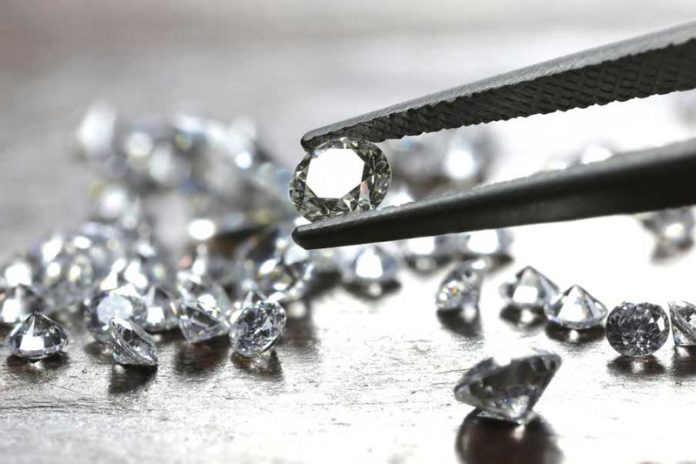Donald Trump , famed for his unpredictable and inflammatory outbursts, is opting for self-censorship in a bid to expand his electorate to more moderate voters ahead of the US presidential election. The 78-year-old billionaire appears to be dialing back his rhetoric on key issues such as immigration and abortion -- a tactic that analysts say is buoyed by his confidence in the loyalty of his conservative base ahead of November's vote. In recent days, the self-proclaimed architect of overturning Roe v Wade, the federal guarantee of abortion rights, has softened his take -- well aware that a hard-line approach does not enjoy majority public support.
The Republican Party's Trump-endorsed platform now adopts the former president's position of leaving the question up to states, dropping a proposed call for a nationwide abortion ban. Trump, who will officially become the Republican presidential nominee at the party's convention next week, has also denounced a controversial document called "Project 2025." The 900-page text -- seen as a governing roadmap and drafted by a conservative think tank with some of Trump's close allies -- was subject to harsh criticism for its calls for mass deportations of migrants and a weakening of federal agencies.

Trump himself has championed such ideas, but that hasn't stopped him from criticizing the text's propositions as "absolutely ridiculous and abysmal" -- without specifying which ones. This week, he said he represented the "Party of Common Sense" -- a catch-all phrase that could entice voters from all walks of life. "Trump is using this moment to broaden his appeal outside of his usual conservative base," said Matthew Continetti of the conservative think tank American Enterprise Institute.
Continetti told AFP that Trump is confident in the support of his core voting base, "so he can begin to present a program and a personality that is trying to take voters from the Democratic coalition." That core base -- notably including conservative Christians -- helped elect Trump to the White House in 2016 and has remained largely loyal since his election defeat in 2020. On top of substance, Trump's style of communicating has also been relatively constrained as Democrats debate the state of President Joe Biden's health and his fitness to run again for office.
Even on immigration -- one of Trump's core election issues -- his tone has cooled since his widely criticized remarks months ago of migrants "poisoning the blood of our country." But Princeton University professor Julian Zelizer urged caution, saying that Trump is simply backing away from issues that could cause him political vulnerabilities. Zelizer told AFP "there is no reason to think he has changed his fundamental views.
" "His strategy is to win. But it's his record in office that should define him," he said. Two weeks after the political class's response to President Joe Biden's poor debate performance threw the 2024 election into chaos, four political experts share their thinking about where the race actually stands and what Biden's supporters should do.
"He can’t win right!? They point to the polling right?" wrote political strategist and pollster Cornell Belcher, a frequent NBC News/MSNBC political analyst, linking to a report about the latest polls which show President Biden ahead of Donald Trump . "Well this is the 2nd poll (credible poll) in 2 days showing the Pres race in statistical deadlock two weeks after debate! Using polls to push Biden out feels like red wave 2020 bs all over again." Belcher was commenting on the latest Marist College poll produced for NPR/PBS NewsHour.
It found Biden beating Trump 50-48 in a one-to-one matchup. When factoring in the four third-party/independent candidates including RFK Jr., Trump came out ahead of Biden, 43-42.
FiveThirtyEight's regularly updated polling aggregator currently shows Trump up over Biden by 1.9 points, a drop from Thursday where he was more than two points over Biden. FiveThirtyEight also currently shows ; "Biden wins 50 times out of 100 in our simulations of the 2024 presidential election.
Trump wins 49 times out of 100." READ MORE: Critics: Where’s Trump’s Hour-Long Press Conference With Policy Questions from Reporters? Former Republican and former GOP communications director Tara Setmayer, a resident scholar at Harvard's Institute of Politics, says the Democratic "freak out needs to stop." "Enough.
" Pointing to that same Marist poll, she focuses on a different question. "This poll also shows character matters more than age. That’s to Biden’s advantage.
" NPR's headline on its article detailing the poll reads: " After Biden's debate performance, the presidential race is unchanged ." "Biden actually gained a point since last month’s survey, which was taken before the debate," NPR reports, adding: "the survey also found that by a 2-to-1 margin, 68% to 32%, people said it’s more concerning to have a president who doesn’t tell the truth than one who might be too old to serve." READ MORE: ‘No Change’: Biden Debate Performance Has Had ‘Almost No Impact’ on 2024 Race Report Finds To Setmayer's point, NPR also says, "A majority said Biden has the character to be president (52%), while a majority also said Trump does not (56%).
" Mike Madrid, the Latino GOP political consultant and Lincoln Project co-founder, offered advice to Biden supporters on how to think about Democrats and pundits pushing for the President to drop out of the race, and how to deal with the day-to-day emotional toll . "Getting lots of questions on how to lower the anxiety level people are feeling. Best thing you can do is unfollow the people attacking Biden gratuitously.
Don’t engage them. Unfollow them. It’s not an honest discussion.
It’s a frenzy that’s doing real damage." "You will not get an explanation from the political arsonists fueling this panic," he added. "Stop looking for one.
Unfollow them. Drop your subscription. Quit listening.
That’s the best thing you can do in the pro-democracy fight right now. Their gaslighting is now a suppression tactic." To someone who said they are "scared," and the situation is "confusing, maddening and sad," Madrid advised : "Nothing has changed.
Stop watching TV and get off Twitter. Take the weekend off. Please.
" The Lincoln Project's Stuart Stevens, a political strategist for decades and author of "The Conspiracy To End America," writes : "I worked in campaigns for 30 years. I am hardwired to respond one way when your guy is in trouble: fight harder. Don’t start looking for exit ramps or magic bullets.
Play the next play. Do your job. Ignore the scoreboard.
It’s supposed to be hard." READ MORE: ‘Betrayal’: Trump Hosts ‘Russian Puppet’ Viktor Orbán as Biden Hosts NATO Leaders CONTINUE READING Show less As much of America baked in heat waves this week, the relatively poor New York borough of the Bronx suffered disproportionately. Reinaldo Morales, a 68-year-old military veteran, went to a seniors' community center with air conditioning because turning it on at home is too costly.
"We live in a cement jungle," he said. "It's nice that they have a cooling center like this. But the idea that we can't even afford to cool our home is outrageous," said Morales.
Temperatures soared as high as 95 degrees Fahrenheit (35 degrees Celsius) this week in New York, far from the 118F (48C) that roasted Las Vegas. But one image here stuck out: a swing bridge linking the Bronx and Manhattan got stuck in the half-open position for hours on Monday as the heat expanded the metal in its hydraulics. Boats pumped water to cool it off.
The Bronx endures problems with poverty, health care and air pollution, and some of its neighborhoods suffered more than others in the heat because of a lack of trees to cool things off. "We have limited shading so it does get very hot especially when the sun is at its peak," said Sandra Arroyo, program director of Casa Boricua, the seniors' center where Morales went to cool off. - 'You are suffocating' - Many residents of the Bronx are low-earning Latinos or African Americans, who say the heat-absorbing buildings that line street after street make life -- and even breathing -- difficult in the scorching, muggy New York summer.
"You walk a block and you are suffocating," said Juan Lorenzo, a 72-year-old Dominican. "You just get really tired," added Stephanie Rodriguez, a 21-year-old cashier watching her two-year-old son play in water spouts at the only large park in all of the borough. "We need more green spaces," said Arif Ullah, head of a community organization called South Bronx Unite.
All along one bank of the Harlem River in the Bronx stand waste treatment facilities, a power plant and warehouses -- all sources of industry and thus, more heat. Nearby sits a small shadeless kids park, under a series of highway overpasses. Ullah said racist urban policies have allowed communities like his to become urban heat islands that lead to health problems.
"And really, it's a matter of life or death," he said. Neighborhoods like Hunts Point and Mott Haven in the south of the Bronx have above-average rates of emergency room visits for respiratory problems attributable to pollution, according to a report issued in April by the New York city government, its first to address the issue of what is known as environmental justice. The city says around 350 people in New York die each year because of the heat or health problems made worse by it, and Black residents are hit twice as often as their white counterparts.
The city says aggravating factors include a lack of air conditioning at home, a situation more common in the Bronx than New York's other boroughs. Deadly heat waves in major cities in America and elsewhere have become more common because of climate change and things will only get worse, experts say. CONTINUE READING Show less Jury deliberations began Friday in the high-profile trial of a powerful U.
S. senator charged with corruption after gold bars and hundreds of thousands of dollars in cash were found at his home. Robert Menendez, a 70-year-old Democrat from New Jersey, is accused of extortion, obstruction of justice and accepting bribes to perform favors for businessmen with connections to Egypt and Qatar.
The most serious charges would carry up to 20 years in prison upon conviction in the trial which began in a New York court in May. Menendez, who said in June he would run as an independent in November's election, is a career politician and formerly led the influential Senate Foreign Relations Committee until the charges were filed. In a raid on his New Jersey home, FBI agents were said to have found nearly $500,000 in cash hidden around the house, as well as gold bars worth around $150,000 and a luxury Mercedes-Benz convertible.
His wife Nadine Menendez, to whom defense lawyers are seeking to shift the blame, has also been charged but will be tried separately in July as she is receiving treatment for breast cancer. Prosecutors alleged Menendez put his power as a top US senator "up for sale." He is on trial with two of the businessmen he allegedly helped -- Egyptian-American Wael Hana and Fred Daibes, a real estate developer.
All have pleaded not guilty. A third businessman, insurance broker Jose Uribe, pleaded guilty to bribery charges in March and has been assisting investigators. Menendez is said to have interfered in the nomination of New Jersey's prosecutor in a bid to ensure that proceedings were dropped against Daibes and Uribe.
He is also accused of accepting bribes to use his power and influence to enrich his co-conspirators and benefit the government of Egypt, including by helping Hana protect his monopoly on US exports of halal food products to the country. CONTINUE READING Show less.



















